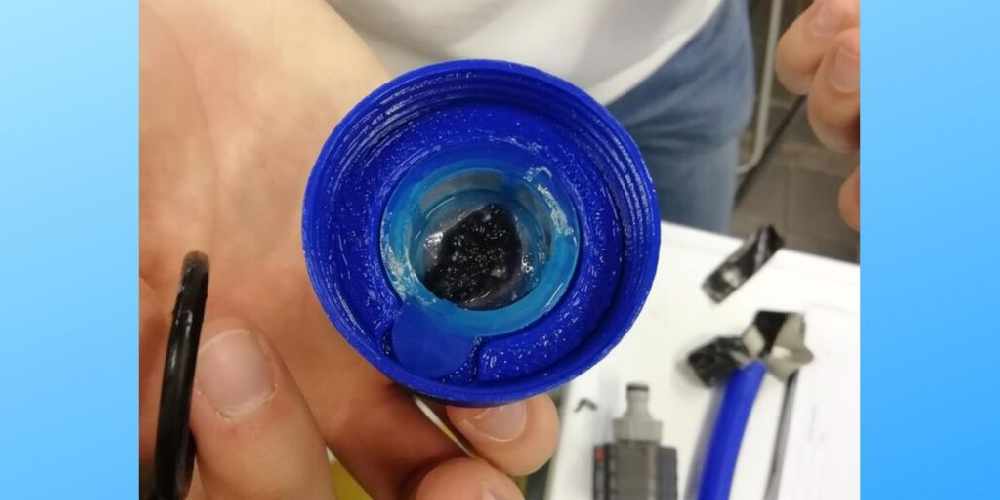
It degrades and dissolves plastics that come off clothing in washing machines.
An invention by a team of University of Exeter students could help combat the problem of clothes shedding plastic microfibres into our oceans.
They have developed a new filter that can degrade and dissolve plastic microfibres that come off clothing in washing machines.
The “smart filter” catches microfibres and uses a set of enzymes to break down plastic into two by-products that are safe to be released into the water system.
While these two compounds (terephthalic acid and ethylene glycol) can be toxic at high concentrations, the volume of water released during a wash is enough to dilute them to a safe level.
At present, every wash cycle releases hundreds of thousands of fibres – and more than a third of microplastics in the oceans are thought to originate from clothing.
The filter has been developed by PETexe, a team of ten Exeter students, and they are working with partners including washing machine producer Miele to put the filter into production.
“Synthetic fibres such as polyester and nylon make up about 60% of clothing material worldwide,” said team member Rachael Quintin-Baxendale.
“Microfibres released during washing flow into our oceans, tap water, the food we eat and even the air we breathe.
“Our smart filter, designed to be fitted to the outlet of household washing machines, catches about 75% of these fibres and breaks them down.
“Degrading larger pieces of plastic this way would normally take a long time, but these microfibres are so small that we aim to fully degrade them between washes.”
 New service station could be built near Barnstaple
New service station could be built near Barnstaple
 Devoncast- Murder in Sidmouth with Jeremy Vine, crumbling cliffs and fake tweets for the birds
Devoncast- Murder in Sidmouth with Jeremy Vine, crumbling cliffs and fake tweets for the birds
 Concern as under half of Devon residents eat their 5-a-day
Concern as under half of Devon residents eat their 5-a-day
 Dawlish cliffs could collapse at any time
Dawlish cliffs could collapse at any time
 Two murders in Cornwall
Two murders in Cornwall
 Councillor owes more than £3,000 in council tax
Councillor owes more than £3,000 in council tax
